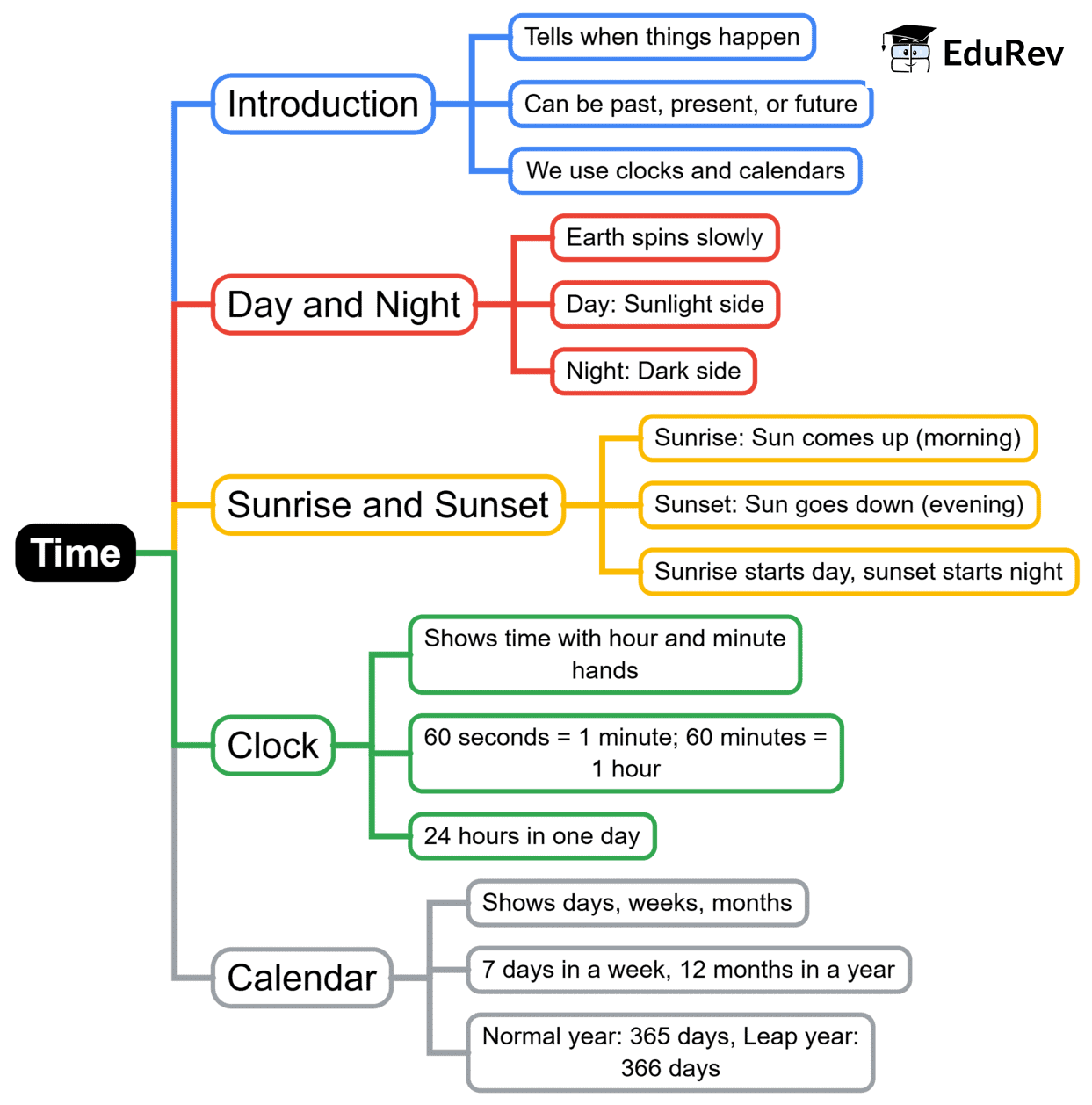Class 2 Exam > Class 2 Notes > EVS for Class 2 > Mind Map: Time
Mind Map: Time | EVS for Class 2 PDF Download

The document Mind Map: Time | EVS for Class 2 is a part of the Class 2 Course EVS for Class 2.
All you need of Class 2 at this link: Class 2
|
30 videos|304 docs|48 tests
|
FAQs on Mind Map: Time - EVS for Class 2
| 1. What is the definition of time in physics? |  |
Ans. In physics, time is defined as a measurable period during which events occur, allowing for the sequencing of events from the past, through the present, and into the future. It is considered a dimension in which events can be ordered and is often measured using clocks.
| 2. How is time measured and what are the tools used for its measurement? |  |
Ans. Time is measured using various tools such as clocks and stopwatches. The most common unit of time is the second, which is defined based on the vibrations of cesium atoms. Other units include minutes, hours, days, and years, which are derived from the basic unit of seconds.
| 3. Why is time considered a fundamental concept in science? |  |
Ans. Time is considered fundamental in science because it plays a crucial role in understanding and describing the dynamics of the universe. It helps scientists analyze the relationships between events, understand motion, and formulate laws of physics, such as those relating to speed, acceleration, and the behavior of particles.
| 4. What are the theories that explain the nature of time? |  |
Ans. Several theories explain the nature of time, including Newtonian time, which views time as absolute and linear, and Einstein's theory of relativity, which posits that time is relative and can be affected by speed and gravity. Additionally, philosophical perspectives, such as presentism and eternalism, explore the nature of time and its existence in relation to reality.
| 5. How does human perception of time differ from scientific time? |  |
Ans. Human perception of time can vary significantly from scientific time. People may feel time passes quickly or slowly based on experiences, emotions, and activities. In contrast, scientific time is standardized and measured consistently, regardless of individual perceptions. This discrepancy leads to various interpretations of time in psychology and philosophy.
Related Searches





















